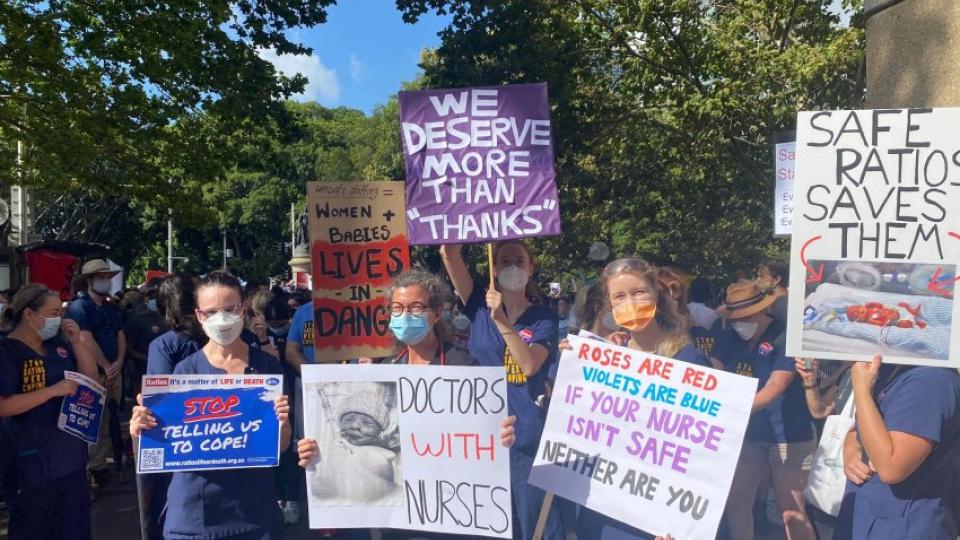Don’t buy the bosses’ inflation lies: workers need real wage rises now

Australia’s inflation rate reached more than 6.1% in the June quarter, the highest annual pace since 2001. Moreover, Treasurer Jim Chalmers predicted that inflation will reach 7.75% by the end of the year.
The consequence of rising prices is a spiralling cost-of-living crisis for working people. Anthony Albanese’s Labor government is not offering solutions.
The Australian Energy Market Operator (AEMO) in its July 29 report, said wholesale power costs soared to unprecedented levels in the three months to June.
The Reserve Bank of Australia (RBA) raised interest rates on August 2 to 1.75% — the fourth consecutive monthly increase. This is meant to address growing inflation. However, working people with mortgages will face a disproportionate impact.
What is driving the growing rate of inflation and what can be done to help working people?
Many countries are experiencing rising inflation. The United States has an inflation rate of 9.1% and Turkey is at 78.6%.
Australia’s corporate media commentators claim disruptions to supply chains caused by the war in Ukraine and the COVID-19 pandemic are the key reasons for the cost of goods rising sharply. They also argue that low interest rates have contributed to the present crisis.
The fundamental causes, however, date back to the last period of high inflation from 1973–90. Over that period, federal neoliberal policies replaced the highly-unionised manufacturing industry with largely non-unionised service industries.
The only “solutions” being offered by these same commentators are to curb wage growth and government spending, even though they are unrelated to the problem. Reserve Bank governor Philip Lowe argues that interest rate hikes, wage restraint and cuts to government spending will deal with inflation.
Similarly, The Australian Financial Review called on the federal government to “commit to the wage and budget restraint needed to reset the foundations for sustainable increases in Australian living standards”.
Meanwhile, workers demanding real wage rises are told that it will hurt the economy and fuel inflation, despite wage growth being at at an all-time low and lower than inflation.
Public sector workers in most states have had their wages capped at 1.5–2.5% — a real pay cut. At the same time, corporate profits surged by more than 10.2% in the first quarter of this year.
New research by The Australia Institute suggests that rising corporate profits, not wages, have contributed to the inflation rise. This is because sections of the capitalist class have deliberately decided to raise prices in excess of rising costs to maximise their profits.
A Guardian Essential poll, released on July 26 as consumer prices were running at their highest level since the 1990s, found that a majority believe that the government can exert an influence over debt, the unemployment rate, inflation, fuel prices, workforce supply and interest rates. It also found that people are looking for more relief on cost of living pressures.
Workers should not have to pay for an inflation crisis caused by corporate greed. We must reject their argument that workers should take a pay cut.
Despite Chalmers saying in his July 28 economic statement that workers’ wages are not to blame, the government is not coming up with solutions to address wage stagnation. His argument that the government needs to be “fiscally responsible” and that it supports the Coalition’s stage 3 tax cuts will not help. We should not have to wait until 2024 for a pay rise.
Solutions do exist, including: raising the “social wage”, including expanding spending on public health, housing and public transport; Raising welfare payments — especially the notoriously low JobSeeker — above the poverty line.
We need to find the ways to strengthen unions and workers to build industrial campaigns that can win wage rises above inflation. The government must abolish anti-union laws that weaken unions. But even without changes to the law, every successful industrial campaign boosts workers’ confidence.
Finally, if the Albanese government really wants to cut wasteful spending, it can start by ending the billions in subsidies for fossil fuel companies and cut military spending, especially on nuclear-powered submarines.
The money saved from these measures would help expand a weakened public sector, raise workers’ wages and fund investment in renewable energy.
[Jacob Andrewartha is a national co-convenor of Socialist Alliance.]